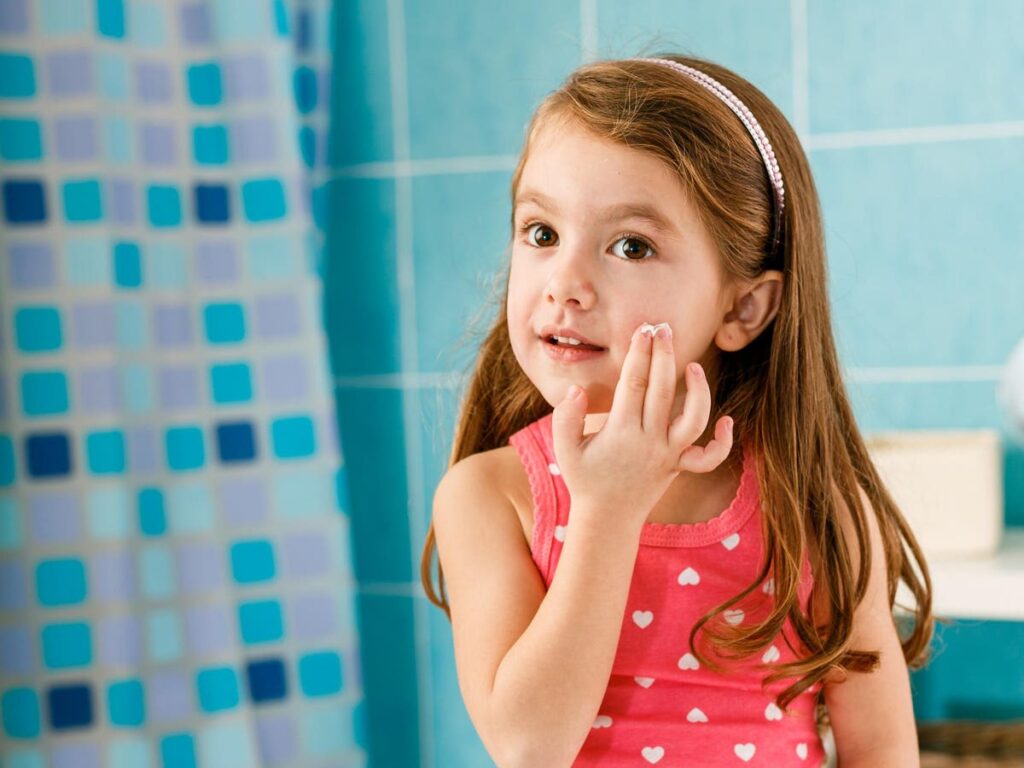The Impact of Anti-Aging Products on Young Girls in the Social Media Age
In recent years, there has been a noticeable surge in preteen girls engaging with skincare products, leading to increased sales in the industry. A report from 2023 noted that American families with children aged 6 to 12 purchased 27.2% more skincare items, while families with teenagers aged 13 to 17 saw an even higher increase of 28.6%. However, this trend raises significant concerns about the appropriateness of the products being used, especially as young girls are increasingly exposed to anti-aging skincare solutions designed for adults.
The Influence of Social Media
With the rise of hashtags like #Sephorakids, young girls often find themselves gravitating towards advanced skincare regimens that feature harsh ingredients intended for mature skin, such as tretinoin and ferrulic acid. This phenomenon can lead to detrimental effects, as demonstrated by real cases where young girls have developed skin irritations from using these products too early.
In a discussion, sisters Ellie and Noe, ages 15 and 14, expressed that while trying new skincare can feel enjoyable and uplifting, the excitement can sometimes cross into excessive use. They noted, “It’s fun, and it makes you feel clean and good about yourself. But sometimes you get hooked and can go too far with it.”
Consequences of Using Anti-Aging Products
Experts warn about the misinformation spreading among young audiences driven by these trends. Dr. Brooke Jeffy, a dermatologist from Scottsdale, Arizona, cautioned, “When kids use anti-aging skincare, they can actually cause premature aging, break down skin barriers, and lead to permanent scarring.” The delicate nature of young skin, which is naturally plump and moist, can be severely compromised when exposed to irritating chemicals.
The implications can be serious. A study highlights that compromising the skin barrier may allow harmful microorganisms to invade, leading to inflammation. As a result, fibroblasts—cells responsible for producing collagen—can behave erratically, increasing the risk of scarring in a young girl’s skin.
Impact on Self-Image
Beyond physical effects, the pressure to conform to certain beauty standards can severely harm young girls’ self-esteem. Mia Hall, a 14-year-old, shared how community bonding over skincare can create both connection and envy: “It’s like a trance… when they say to me, ‘I’ve used this and it’s amazing,’ it feels very personal.” However, this heightened awareness of beauty can lead to feelings of inadequacy, compounding mental health issues.
Mitigating Risks: Strategies for Protection
To protect young girls from these harmful trends, a multifaceted approach is essential, including legal measures, parental guidance, and accurate education about skincare.
Legislative Actions
California State Senator Alex Lee has proposed legislation aimed at restricting the sale of anti-aging products to minors under 18 years old. “The beauty industry is cashing out on the ‘Sephora Kids’ phenomenon where children buy and use adult anti-aging products,” Lee noted. “Kids don’t need anti-aging products. The beauty industry knows that.”
Parental Guidance
Parents should take an active role in mitigating the influence of social media on their children’s skincare habits. Implementing the following steps can help:
- Educate children about the safety of skincare products, particularly anti-aging formulas.
- Review the ingredients of the products children are using, ensuring they are safe and suitable for their age.
- Encourage healthy skincare routines that focus on basic care rather than complicated regimens.
Simple Pediatric Skin Care Recommendations
Pediatricians often recommend simple skincare routines for children and teens that avoid the complexities and dangers of adult anti-aging products. The recommendations include:
- For acne-free skin: Use gentle cleansers like Cetaphil and lightweight moisturizers such as Cerave.
- For acne-prone skin: Employ products containing benzoyl peroxide and topical retinoids, with continued use of light moisturizers and sunscreen.
Parents should consult healthcare professionals before introducing any products to their children’s skincare regime to ensure safety and appropriateness.
For further details or inquiries, a comment was sought from Sephora regarding this growing concern, but no response has been received as of yet.
